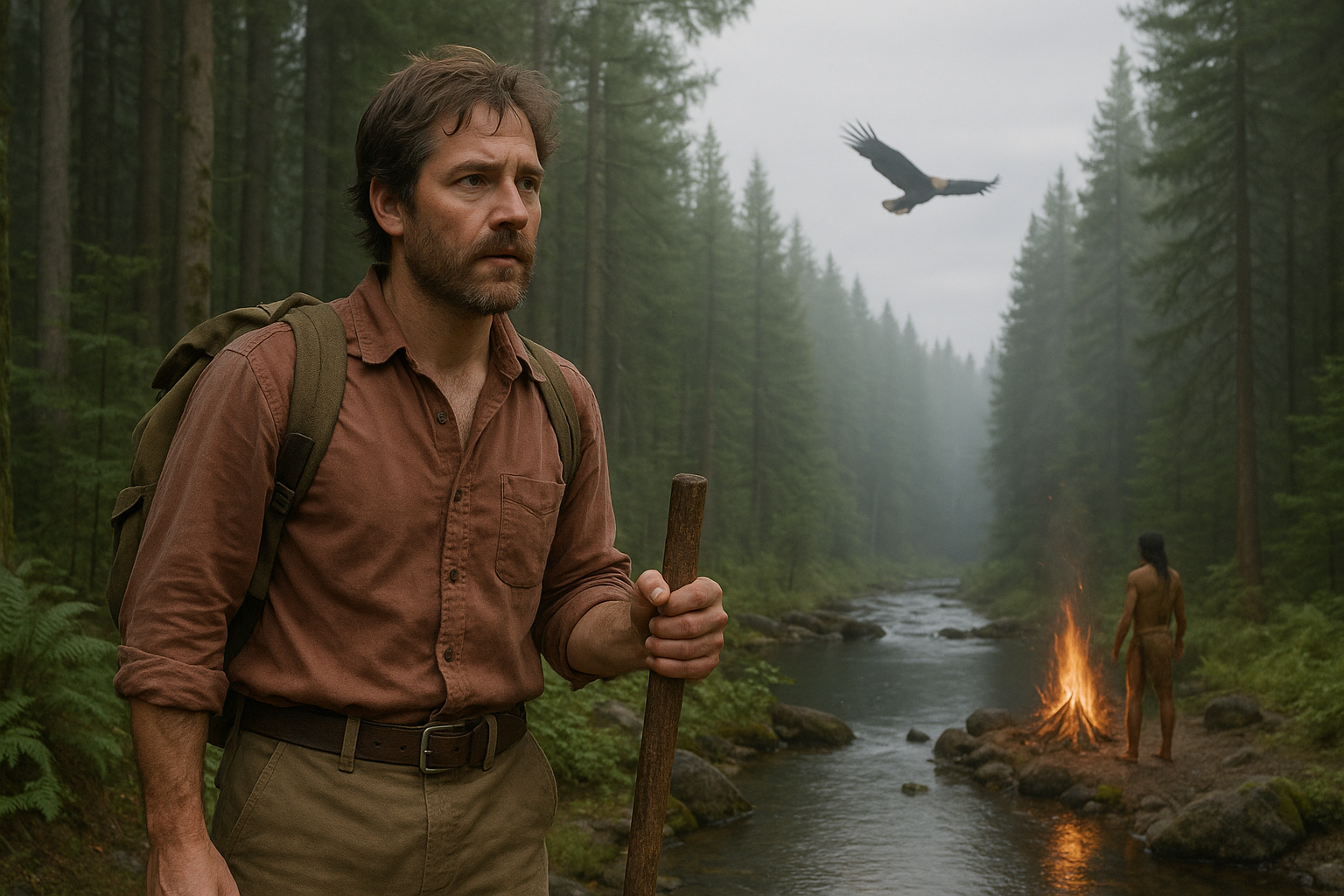Home
/
LEARN TO SURVIVE
/
How to Survive After Time-Traveling: The Native American Wilderness Edition

How to Survive After Time-Traveling: The Native American Wilderness Edition
You open your eyes, and the world feels… ancient.
The air smells of pine resin and smoke. You hear the rush of a distant river, the cry of an eagle overhead.
No concrete, no traffic, no phone in your pocket — only the vast wilderness of pre-colonial America.
Congratulations — you’ve just time-traveled.
And now, it’s not about “how to get back.”
It’s about how to survive.
1. Stay calm — the forest is watching you
Panic is your first enemy.
The forest senses fear — not literally, but predators and people both read body language.
Take a slow breath. Feel the earth under your palms. Listen.
You might hear a stream nearby, or the rhythmic beat of a tribal drum in the distance.
Observation comes before action — because in this era, every mistake costs blood or breath.
2. Water first, always
You can live weeks without food, but only days without water.
Find a flowing source — a stream, river, or meltwater. Avoid stagnant ponds; they breed sickness.
If you have no container, carve a shallow pit in the sand and line it with animal skin or bark.
Heat rocks in a fire, drop them into the water to boil it — the way indigenous tribes purified water long before steel pots existed.
In this world, boiled water is life.
3. Fire — your best friend and your declaration of existence
Fire means safety, warmth, cooked food, and the courage to face the night.
Without matches, use the bow-drill method — a wooden spindle spun by a stringed bow, rubbing into a dry fireboard until smoke appears.
Patience will be tested; your palms will burn. But when the first ember glows, you’ll feel something almost sacred — the same triumph the first humans felt when they tamed flame.
And if someone from a nearby tribe sees the smoke?
That’s both a signal and a gamble.
4. Food — learn from the land
In the Americas before modern civilization, food wasn’t something you “bought.” It was something you earned.
Watch what animals eat.
The chipmunk’s stash or the deer’s grazing spot often hides edible roots and berries.
But remember: bright colors often mean poison.
Cook everything you can — especially roots, insects, and fish.
Roasted grasshoppers are protein-rich and surprisingly nutty.
Congratulations, you’ve just joined the world’s oldest culinary tradition.
5. Shelter — between earth and spirit
A good shelter is the thin line between rest and death.
Use fallen branches, thick leaves, and mud to form a low dome.
If you find birch bark, it peels easily and repels rain — nature’s tarp.
Keep your shelter small, close to the ground, and near a fire pit.
In tribal cultures, the circle of stones around the fire was more than warmth — it was home, identity, and safety against the wild night.
6. Communication — the real survival skill
Let’s say you meet people — the first humans of this land. They might be from the Apache, Cherokee, or Lakota nations.
You don’t speak their language. But you can still speak respect.
Lower your weapon (or hands).
Smile lightly, touch your chest when introducing yourself.
Mimic their rhythm — tone and gesture speak louder than words.
A wrong move can mean death; a humble one can earn you bread, shelter, or friendship.
And remember — never mock or flaunt. A “stranger who acts like a spirit” could be seen as a threat.
7. Knowledge is your hidden fire
Your greatest advantage isn’t technology — it’s memory.
You know about medicine, seasons, and basic chemistry.
Use crushed charcoal as a filter, honey as an antibiotic, willow bark as pain relief (it’s natural aspirin).
If you show that knowledge gently, you might become a healer — a “wise spirit” in the tribe.
That’s not only survival. That’s belonging.
8. Learn their rhythm — and earn your place
The Native peoples lived with nature, not above it.
Hunt only what you need. Share food. Offer gratitude to the river and fire.
When they chant before a hunt or burn sage at sunset — don’t question it.
These aren’t just rituals. They’re lessons in harmony, taught by generations who never had a word for “wilderness,” because to them, it was simply home.
9. When survival becomes meaning
Weeks pass. You’ve learned to move silently, to fish with a spear, to listen before speaking.
You no longer crave the sound of engines or the blue glow of a screen.
Instead, you find peace in the crackle of firewood and the whisper of the wind through pine needles.
Survival is no longer just about living.
It’s about remembering what life was — before noise, before walls, before time itself.
Final Thought
If one day you wake up in a forgotten century — don’t panic.
The earth still feeds, the fire still answers, and the human heart still learns.
You don’t need to escape back to your world.
Maybe, just maybe, you were sent here to remember how to be human again.
Would you like me to write a sequel — “How to Thrive and Build a Civilization After Time-Traveling to Ancient America”?
It could expand into practical strategies: trade, alliances, medicine, primitive innovation, and power dynamics among tribes.
Share

